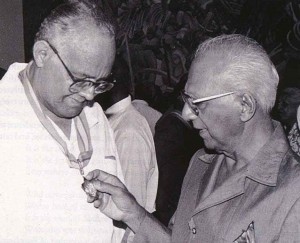By Petamber Persaud
Martin Carter initiated a number of issues, and started an ongoing dialogue by way of his prose and poetry in the manner and with a purpose of a consummate artist, going further than most writers of merely acting as a mirror or barometer of the society.
In a letter introducing the first issue of the New World Quarterly, Carter harped on the need for ‘serious examination of ideas’ and objectivity, going on to declare, “…I do not know why only so few revolt, either by word or by deed against …acute spiritual discomfort.”




